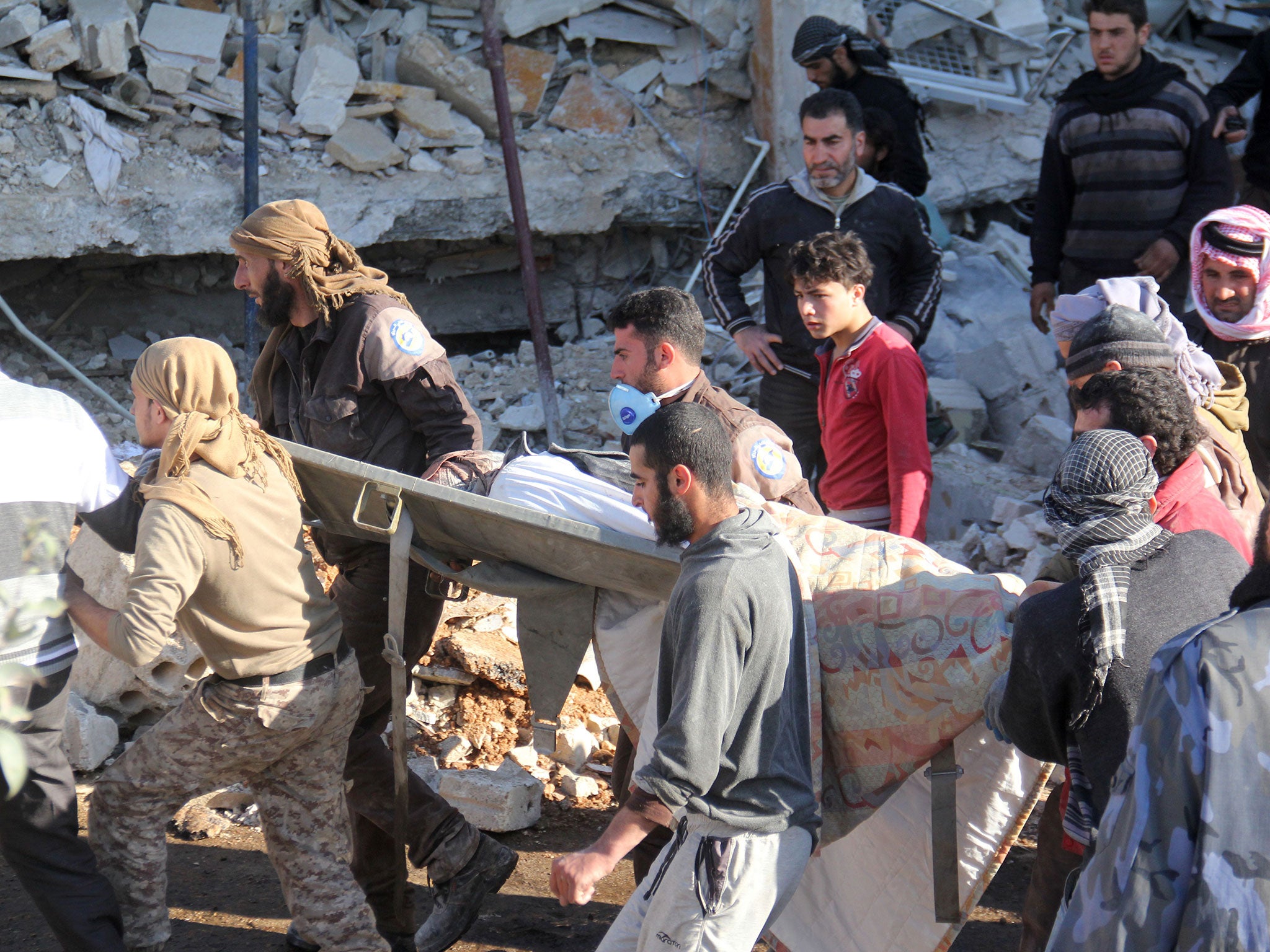Médecins Sans Frontières keeps Syria hospital locations secret over fears they could be targeted
Charity says repeated attacks have led medical staffers to ask the group not to provide the GPS co-ordinates of some sites

Your support helps us to tell the story
From reproductive rights to climate change to Big Tech, The Independent is on the ground when the story is developing. Whether it's investigating the financials of Elon Musk's pro-Trump PAC or producing our latest documentary, 'The A Word', which shines a light on the American women fighting for reproductive rights, we know how important it is to parse out the facts from the messaging.
At such a critical moment in US history, we need reporters on the ground. Your donation allows us to keep sending journalists to speak to both sides of the story.
The Independent is trusted by Americans across the entire political spectrum. And unlike many other quality news outlets, we choose not to lock Americans out of our reporting and analysis with paywalls. We believe quality journalism should be available to everyone, paid for by those who can afford it.
Your support makes all the difference.The international aid group Médecins Sans Frontières has not informed Syria’s government or its allies about the location of hospitals because of fears that they could be deliberately targeted.
The charity said repeated attacks against health facilities during Syria’s five-year civil war have led medical staffers to ask the group not to provide the GPS co-ordinates of some sites. This was the case with the makeshift clinic run by the charity in the town of Maaret al-Numan, which was hit four times in attacks on Monday, killing at least 25 people.
“Deliberate attacks against civilian infrastructures, including hospitals struggling to provide life-saving assistance are routine,” MSF international president Joanne Liu told reporters in Geneva. “Healthcare in Syria is in the crosshairs of bombs and missiles. It has collapsed. Let me be clear: attacks on civilians and hospitals must stop. The normalisation of such attacks is intolerable.”
Ms Liu said the group is not certain who was responsible for the strikes, but the “probability” was that Syrian or Russian air power was to blame.
Meanwhile, the head of the UN task force on humanitarian aid for Syria said that 114 “big trucks” delivered life-saving supplies over the past 24 hours for 80,000 people in five besieged areas of the country. Norwegian diplomat Jan Egeland called the deliveries a “first step” by the task force that was set up last week following a meeting of world and regional powers known as the International Syria Support Group. He said the supplies were enough to last about a month.
MSF said that since the war broke out in 2011, the Syrian government has not granted permission for it to provide medical aid in the country, despite its repeated requests. It documented war casualties based on information from 70 “makeshift hospitals” and clinics it works with in Syria.
While only “a small fraction of the health facilities in Syria”, those medical facilities have recorded 7,009 people dead and 154,647 people wounded during the conflict. The UN estimates that more than 250,000 people have been killed and 11 million displaced from their homes.
Associated Press
Join our commenting forum
Join thought-provoking conversations, follow other Independent readers and see their replies
Comments